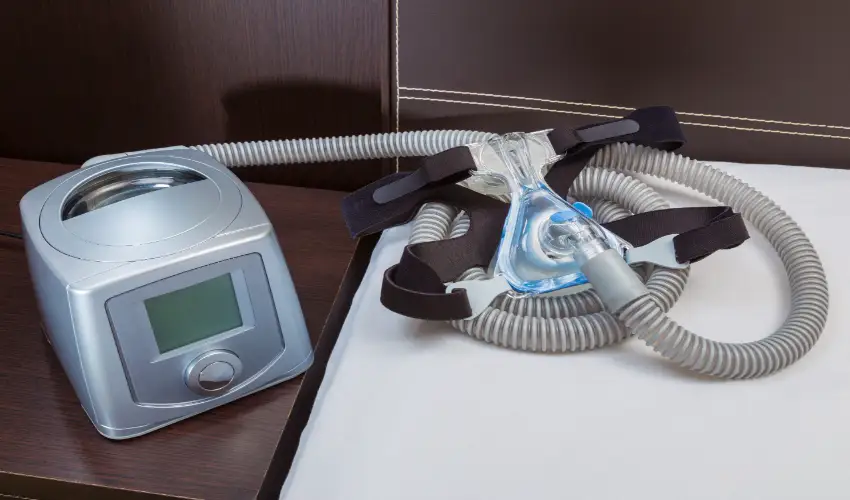Sleep apnea is a common sleep disorder that affects millions of people worldwide. It occurs when breathing repeatedly stops and starts during sleep, often leading to fatigue, poor concentration, and long-term health risks if left untreated. Fortunately, sleep apnea machines, commonly referred to as CPAP (Continuous Positive Airway Pressure) or BiPAP (Bilevel Positive Airway Pressure) devices, can greatly improve sleep quality and overall health. However, with many options available on the market, choosing the right 睡眠呼吸機 for your needs can feel overwhelming. This guide will help you understand the key factors to consider so you can make an informed decision.
Understanding Sleep Apnea Machines
Before choosing a machine, it’s important to understand how they work. CPAP machines deliver a constant stream of air pressure to keep your airway open during sleep. This prevents interruptions in breathing and allows you to rest more soundly. BiPAP machines, on the other hand, provide two levels of pressure—one for inhalation and another for exhalation—which can be more comfortable for people with higher pressure needs or certain medical conditions.
Both types of machines often come with features like humidifiers, mask options, and data tracking systems to monitor your therapy progress.
Key Factors to Consider
- Type of Machine
The first step is identifying whether you need a CPAP, BiPAP, or APAP (Automatic Positive Airway Pressure) machine.
- CPAP: Best for most people with obstructive sleep apnea.
- BiPAP: Ideal for those who require higher pressure levels or have conditions like COPD.
- APAP: Adjusts pressure automatically throughout the night, making it a good choice if your pressure needs vary.
Your sleep specialist will usually recommend the right type after a sleep study.
- Comfort and Fit
Since you’ll be using the machine every night, comfort is crucial. Look for models with adjustable settings, quiet operation, and a comfortable mask. Masks come in different styles such as nasal pillows, nasal masks, and full-face masks. Trying different options can help you find the one that feels most natural.
- Humidifier Options
Dryness and irritation are common complaints among new users. Machines with built-in or optional humidifiers add moisture to the airflow, reducing dryness in your nose, mouth, and throat. If you live in a dry climate or experience nasal congestion, a humidifier can significantly improve comfort.
- Data Tracking and Connectivity
Modern sleep apnea machines often include data-tracking features that monitor your usage, mask fit, and breathing patterns. Many even connect to mobile apps or online platforms, allowing you and your doctor to track your progress. This feedback helps ensure you’re getting the maximum benefit from your therapy.
- Noise Level
A noisy machine can disrupt your sleep instead of improving it. Fortunately, most modern CPAP and BiPAP machines are designed to be whisper-quiet. Always check the noise rating before making a purchase, especially if you are a light sleeper.
- Portability and Travel Features
If you travel frequently, consider a portable or travel-sized CPAP machine. These devices are compact, lightweight, and often come with FAA approval for in-flight use. Some models even have rechargeable batteries, making them convenient for camping or trips where power outlets aren’t available.
- Price and Insurance Coverage
Sleep apnea machines can range in price depending on features and brand. Check whether your health insurance covers part or all of the cost. Sometimes renting a machine before buying can help you decide if it’s the right fit.
Tips for First-Time Users
Getting used to a sleep apnea machine can take time. Here are some tips to ease the transition:
- Start gradually: Try wearing the mask for short periods while awake to get used to the feel.
- Keep the mask clean: Regular cleaning prevents skin irritation and keeps the device hygienic.
- Use ramp settings: Many machines allow you to start with a lower pressure that gradually increases, making it easier to fall asleep.
- Stay consistent: It may take a few weeks, but regular use will bring the best results.
The Health Benefits of Choosing the Right Machine
When you find the sleep apnea machine that suits your needs, the health benefits can be life-changing. Improved sleep quality leads to more energy during the day, better concentration, and enhanced mood. Long-term use can also reduce the risk of high blood pressure, heart disease, stroke, and diabetes. For many, it can even improve relationships, as partners no longer have to deal with loud snoring or restless nights.
Conclusion
Choosing the right sleep apnea machine for you requires careful consideration of your medical needs, comfort preferences, and lifestyle. With the guidance of your healthcare provider and the right equipment, you can enjoy restful nights and better overall health. Whether you opt for a CPAP, BiPAP, or APAP, investing in the right machine will be one of the most important steps toward managing sleep apnea effectively.
